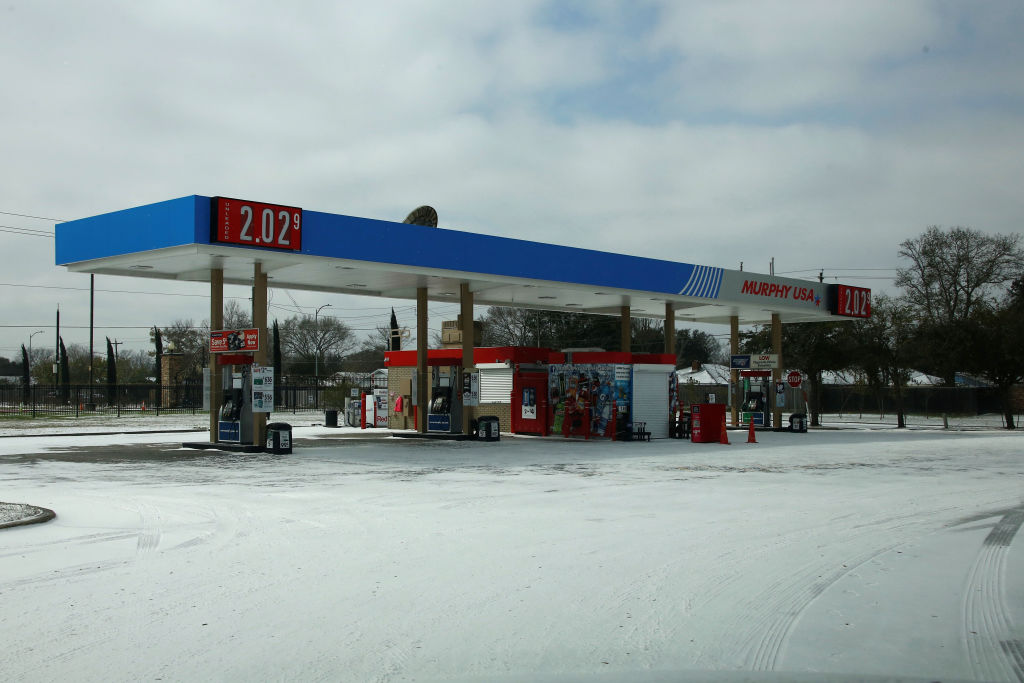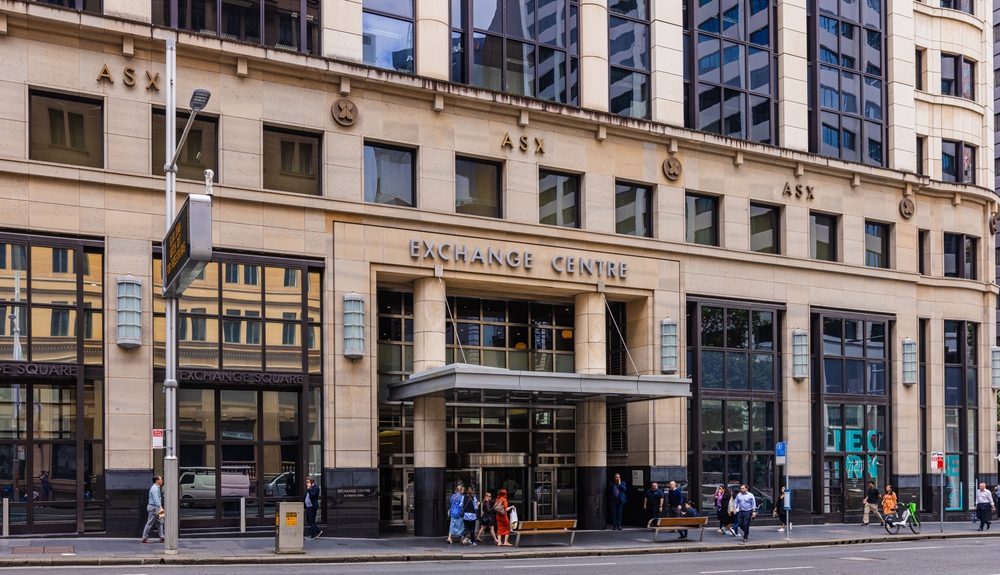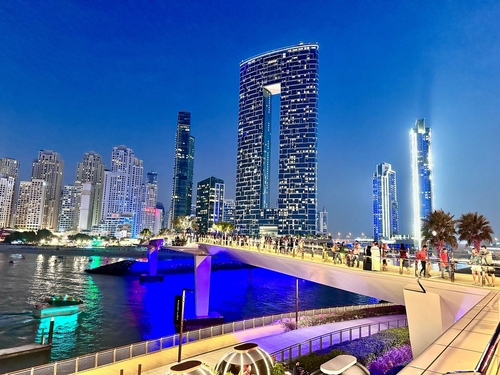Texas Blackout Boosts Macquarie Bank By Up To $270 Million
Macquarie shares up as a result of Texan deep freeze.
The deep freeze that plunged millions of Texans into darkness is rippling through energy markets in unexpected ways, producing a financial windfall for Macquarie bank and severe pain for other companies caught up in the disruption.
The extreme weather froze wind turbines and oil-and-gas wells, closed oil refiners and prompted power stations to trip offline, sending a jolt through energy markets. Wholesale power prices rocketed, as did spot prices for natural gas in Texas, Oklahoma, Kansas and Arkansas.
The turbulence led to a bonanza for commodity traders at Macquarie Group Ltd., whose ability to funnel gas and electricity around the country enabled them to capitalise on soaring demand and prices in states such as Texas.
The bank bumped up its guidance Monday for earnings in the year through March to reflect the windfall. It said that net profit after tax would be 5% to 10% higher than in the 2020 fiscal year. That equates to an increase of up to $273.1 million. In its previous guidance, issued Feb. 9, Macquarie said it expected profits to be slightly down on 2020.
“Extreme winter weather conditions in North America have significantly increased short-term client demand for Macquarie’s capabilities in maintaining critical physical supply across the commodity complex, and particularly in relation to gas and power,” the bank said.
Macquarie’s windfall shows how big profits can be made wagering on relative scarcity of natural gas in a country awash in the fuel.
The U.S. shale-drilling boom unleashed so much gas over the past decade that prices have been depressed to the point that producers with gushers have gone bankrupt. Yet gas buyers, such as power plants and manufacturers, are routinely left paying surging prices when demand peaks during winter storms.
Behind such instances of energy feast and famine is a gas infrastructure system that has failed to keep up with all the drilling. Pipelines laid decades before the shale boom are often in the wrong places, or too small to meet today’s demand. Having space reserved on certain pipelines can become incredibly lucrative when uncharacteristic weather causes swells in demand.
Scarcity in Texas and the Great Plains was amplified last week when temperatures dropped low enough to freeze shut many of the region’s gas wells and other energy infrastructure. Capacity on pipelines into the region became precious. Traders and energy firms that had paid in advance for the right to use these supply routes were suddenly in position to rake in huge profits as utilities vied for fuel deliveries.
Macquarie describes itself as the second-largest marketer of physical gas in North America behind BP PLC, with a team in Houston and access to 80% of pipelines spanning the U.S., according to a person familiar with the matter. The business, which Macquarie has built out for over a decade, received a boost from the acquisition of Cargill Inc.’s North America power and gas division in 2017.
The bank rents access to natural-gas pipelines and electricity networks across the U.S., enabling it to profit when prices in some regions are significantly higher than in others and when consumers are in urgent need of fuel or power. That was the case last week, when frozen energy infrastructure and the closure of oil-and-gas wells set off a race for natural gas among Texas power plants and other consumers.
Macquarie sent large volumes of gas from the north of the U.S. to the south, where the cold weather sent prices soaring last week, the person familiar with the matter said. It supplied electricity in Texas as well as gas to generate electrical power.
At one point, natural gas changed hands for more than $900 per million British thermal units at the ONEOK Gas Transportation hub in Oklahoma, according to commodities data provider S&P Global Platts. By Friday, prices at the hub had fallen back to about $14 per million British thermal units. That was still comparatively high: Benchmark futures for U.S. natural gas, which are tied to delivery at Henry Hub in Louisiana, have generally cost between $2.50 and $3.50 per million British thermal units in recent months.
Shares of Macquarie rose 3.4% on Monday after the company raised its profit outlook. They are now down 2.8% over the past 12 months.
Millions were left without power and heat in Texas last week as the lowest temperatures in decades wreaked havoc on the state’s utilities. Frozen water lines burst and left big residents in cities without safe drinking water. Stores closed because they had no power, which made food and water even more scarce.
Roughly 70 deaths, mostly in Texas, have been attributed to the cold weather, according to the Associated Press. Some are believed to have frozen to death in their homes.
Macquarie last year provided an undisclosed amount of investment capital to upstart Houston-based utility Griddy Energy LLC, whose business model is to pass variable wholesale electricity prices through to customers. Griddy customers complained of paying lofty sums when power prices shot up to thousands of dollars per megawatt hour last week, according to local Texas media reports.
One customer told the Dallas Morning News that his electric bill for five days stood at US$5000, the amount he would normally pay for several years of power. Another told the Dallas-Fort Worth NBC affiliate that he had been charged more than US$16000 for February.
A Griddy spokeswoman said an order by the state utility agency to the operator of the electricity grid to make market prices reflect the scarcity of power pushed up prices for its customers. On Feb. 12, the company started emailing and texting customers to say they might be better off switching providers for a short time to avoid exposure to wholesale prices, she said.
Corporate casualties from the freeze are also starting to emerge. Just Energy Group Inc., a Canada-based energy supplier, on Monday said it faced a financial hit of about US$250 million, in part from buying electricity at sky-high prices in Texas during the cold blast. The company, which said the blow could stop it from continuing as a going concern, saw its shares slump 31%.
In another instance, shares of Atmos Energy Corp. fell 4.4% Monday after the Dallas-based gas supplier said it would have to pay between US$2.5 billion and US$3.5 billion for gas it bought at elevated prices in Texas, Colorado and Kansas. Atmos may issue stock or raise debt to help to pay for the purchases, it said Friday.
German energy company RWE AG said its 2021 earnings would be hit by outages at the company’s wind turbines, as well as from high prices for electricity.
 Copyright 2020, Dow Jones & Company, Inc. All Rights Reserved Worldwide. LEARN MORE
Copyright 2020, Dow Jones & Company, Inc. All Rights Reserved Worldwide. LEARN MORE
This stylish family home combines a classic palette and finishes with a flexible floorplan
Just 55 minutes from Sydney, make this your creative getaway located in the majestic Hawkesbury region.
Continued stagflation and cost of living pressures are causing couples to think twice about starting a family, new data has revealed, with long term impacts expected
Australia is in the midst of a ‘baby recession’ with preliminary estimates showing the number of births in 2023 fell by more than four percent to the lowest level since 2006, according to KPMG. The consultancy firm says this reflects the impact of cost-of-living pressures on the feasibility of younger Australians starting a family.
KPMG estimates that 289,100 babies were born in 2023. This compares to 300,684 babies in 2022 and 309,996 in 2021, according to the Australian Bureau of Statistics (ABS). KPMG urban economist Terry Rawnsley said weak economic growth often leads to a reduced number of births. In 2023, ABS data shows gross domestic product (GDP) fell to 1.5 percent. Despite the population growing by 2.5 percent in 2023, GDP on a per capita basis went into negative territory, down one percent over the 12 months.
“Birth rates provide insight into long-term population growth as well as the current confidence of Australian families,” said Mr Rawnsley. “We haven’t seen such a sharp drop in births in Australia since the period of economic stagflation in the 1970s, which coincided with the initial widespread adoption of the contraceptive pill.”
Mr Rawnsley said many Australian couples delayed starting a family while the pandemic played out in 2020. The number of births fell from 305,832 in 2019 to 294,369 in 2020. Then in 2021, strong employment and vast amounts of stimulus money, along with high household savings due to lockdowns, gave couples better financial means to have a baby. This led to a rebound in births.
However, the re-opening of the global economy in 2022 led to soaring inflation. By the start of 2023, the Australian consumer price index (CPI) had risen to its highest level since 1990 at 7.8 percent per annum. By that stage, the Reserve Bank had already commenced an aggressive rate-hiking strategy to fight inflation and had raised the cash rate every month between May and December 2022.
Five more rate hikes during 2023 put further pressure on couples with mortgages and put the brakes on family formation. “This combination of the pandemic and rapid economic changes explains the spike and subsequent sharp decline in birth rates we have observed over the past four years,” Mr Rawnsley said.
The impact of high costs of living on couples’ decision to have a baby is highlighted in births data for the capital cities. KPMG estimates there were 60,860 births in Sydney in 2023, down 8.6 percent from 2019. There were 56,270 births in Melbourne, down 7.3 percent. In Perth, there were 25,020 births, down 6 percent, while in Brisbane there were 30,250 births, down 4.3 percent. Canberra was the only capital city where there was no fall in the number of births in 2023 compared to 2019.
“CPI growth in Canberra has been slightly subdued compared to that in other major cities, and the economic outlook has remained strong,” Mr Rawnsley said. “This means families have not been hurting as much as those in other capital cities, and in turn, we’ve seen a stabilisation of births in the ACT.”
This stylish family home combines a classic palette and finishes with a flexible floorplan
Just 55 minutes from Sydney, make this your creative getaway located in the majestic Hawkesbury region.






















